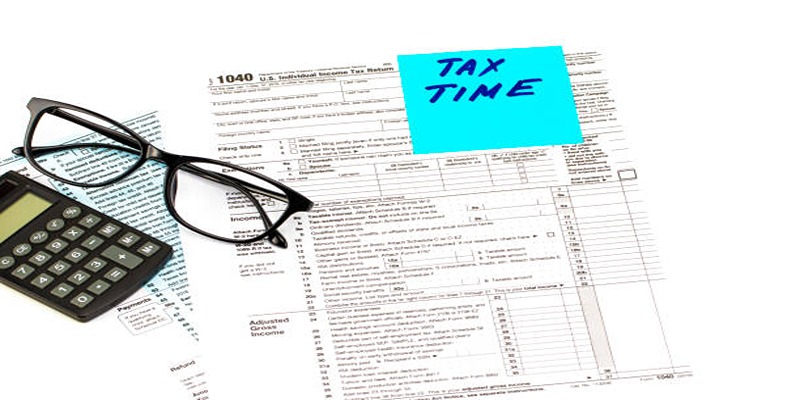When it comes to taxes, the thought of amending a return can seem daunting, especially for small amounts. However, understanding the potential benefits of making these changes is essential. Tax laws are complex and ever-evolving, meaning that even minor discrepancies can have consequences. Sometimes, amending your tax return can lead to benefits such as refunds or credits that were overlooked the first time around. Furthermore, correcting any errors can help avoid complications that might arise during audits. This introduction will explore whether it is worth the time and effort to amend your tax return for a small amount, discussing the implications and advantages that such an action may entail. In doing so, we aim to provide clarity and aid in your decision-making process.
What Is an Amended Tax Return?

An amended tax return is a form filed with the Internal Revenue Service (IRS) to make corrections to a previously submitted tax return. The most common reasons for filing an amendment include correcting errors in income reporting, claiming overlooked deductions or credits, or changing your filing status. To amend a tax return, taxpayers typically use Form 1040-X, which allows them to clearly outline the changes being made and provide an explanation for each adjustment. It's important to note that the IRS allows taxpayers to amend their returns within a specific time frame, usually within three years from the original filing date or within two years of paying any tax due, whichever is later.
Reasons to Amend Your Tax Return
1. Potential Refunds
Amending a tax return provides an opportunity to claim additional refunds or credits that you may have missed initially. This can result in a significant financial boost, especially if the corrections involve deductible expenses or tax credits.
2. Correction of Errors
Mistakes on your tax return, whether they are related to income reporting, deductions, or credits, can lead to issues with the IRS. Amending your return allows you to correct these errors, ensuring that your tax records are accurate and up to date.
3. Avoiding Penalties
If you discover an error that could lead to owing more tax, addressing it through an amendment can help you avoid potential penalties. By proactively correcting the return, you show the IRS your commitment to compliance.
4. Peace of Mind
Amending your tax return can bring peace of mind, knowing that you have taken steps to ensure accuracy. Addressing any discrepancies can reduce anxiety about future audits or inquiries from tax authorities.
Factors to Consider Before Amending
Before deciding to amend your tax return, there are several factors you should take into account.
1. Cost-Benefit Analysis
Evaluate the potential benefits of claiming a refund against any costs associated with filing the amendment, such as tax preparation fees or the time youll spend on the process. If the potential refund is minimal, it may not be worth the hassle or expense.
2. Timing
Consider the time frame for amending your return. If you are close to the three-year deadline for amending, be sure to prioritize the process. However, if the amendment will not provide immediate benefits, you might weigh whether to wait until the tax season is over for a better assessment of your overall financial situation.
3. Complexity of Changes
Assess the complexity of the changes you wish to make. If the amendments involve numerous adjustments or complicated tax scenarios, it might be prudent to consult a tax professional to ensure that the changes are made correctly and to avoid future issues.
4. Risk of Audit
Amending your return can sometimes trigger scrutiny from the IRS, especially if the changes are substantial. Its important to weigh the potential risks of an audit against the advantages of making corrections.
5. Personal Financial Situation
Finally, reflect on your current personal financial circumstances. If your financial situation has changed significantly since the original filing, this could impact the benefits of amending your return. Its always wise to consider how amendments will fit into your broader financial goals.
The Amendment Process

Amending your tax return is a structured process that requires careful attention to detail. Heres a step-by-step guide to help you navigate through it:
Step 1: Gather Documentation
Start by collecting all necessary documents related to your original tax return, including W-2s, 1099s, and receipts for deductions. Ensure you have any supporting documentation that justifies the changes you're planning to make.
Step 2: Obtain Form 1040-X
Download Form 1040-X, the official amendment form provided by the IRS. This form is designed specifically for taxpayers to report changes made to their tax return. You can find this form on the IRS website or through tax preparation software.
Step 3: Complete the Form
Fill out Form 1040-X, carefully detailing each change you wish to make. The form has three columns: the original amounts, the corrected amounts, and the difference. Be clear in providing an explanation for each correction, as this helps the IRS understand your amendments.
Step 4: Submit the Amendment
Once you have completed the form, submit it to the IRS. You can choose to mail it or, in some cases, submit it electronically, depending on the tax year and the software youre using. Double-check the mailing address listed on the form to ensure it goes to the correct location.
Step 5: Be Patient
Processing times for amended returns can vary, and it may take up to 16 weeks or longer for the IRS to process your amendment. During this time, ensure that you stay informed and follow any instructions or requests from the IRS promptly.
Following these steps will help make the amendment process smoother and increase the likelihood of a positive outcome.
Conclusion
Amending your tax return is an essential step in ensuring your financial records are accurate and reflect your true tax situation. Whether you are seeking to recover missed refunds, correct errors, or simply ensure compliance with IRS regulations, understanding the amendment process can be greatly beneficial. By weighing the factors to consider, gathering the appropriate documentation, and following the outlined steps, you can navigate this process with confidence. Ultimately, taking the time to amend your return not only mitigates potential issues with the IRS but also provides peace of mind, knowing that you've addressed any discrepancies and secured your financial standing.




